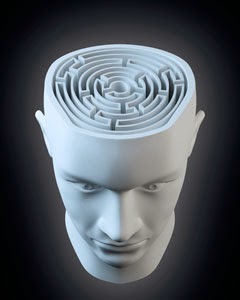People do not want to
consider themselves as addicts or poor performers or sources of
problems. As a result, they are good at justifying their behaviours,
even when those behaviours are wrong. The justifications in their
minds make perfect sense – to them – even if they seem
unreasonable to others. Drug and alcohol dependency prompts these
kinds of justifications because they enable people to hang on to
their bad habits whilst attempting to reconcile the cognitive
dissonance that creates emotional and mental stress. Though some
people are truly unconcerned about their bad judgement or poor
decision-making, most realise they are acting unreasonably by using
illicit drugs or drinking alcohol in the workplace. Yet they continue
to do so, and the justifications and lies begin. The justifications
are meant to protect their view of themselves, stop co-workers from
getting suspicious, and/or stop employers from insisting on a
for-cause drug alcohol testing.
Relapse is the end of a
staged process. When someone decides to give up drugs or alcohol, the
first stage is contemplation. At that point, the person is ambivalent
about quitting. The next state is taking action. The third state is
maintenance during which the person changes behaviours to make a
substance-free life. During maintenance, there comes a point there a
person makes a decision to achieve long-term success or relapse.1
Drug dependence increases the chances of relapse.
It Just Feels Good
Unfortunately, people can
justify themselves back into addiction, and especially if they are
risk-takers. Dependency is a function of the physical response to
the drug, but it is also determined by a person’s willingness to be
a risk-taker or novelty-seeker and by how rewarding they find the
effects of substances.2
Relapse is the end result
of giving in to a craving that has already been proven to be
controllable.
A person who has a craving
knows the wrong thing to do is use drugs or drink alcohol. Since the
behaviour (using substances) would not fit the thoughts (drugs or
alcohol would help), the person alter their thoughts to fit the
situation. If this seems a bit circular, it is important to remember
that concocting justifications is a process in which something wrong
is turned right-side-up. Ultimately, in justifying relapse, the goal
is to explain away the cognitive dissonance to bring behaviours and
thoughts into alignment. Justifications can vary widely with
employees telling themselves:
- They are making a big deal about drugs, but one time isn’t going to hurt me
- I can drink this time so I fit in at the office party; otherwise people will think I’m weird
- I will use a different drug than the one I was using and it won’t have the same effect
- My job is so stressful and that is not my fault; I need a way to really relax
- People who never use drugs don’t understand how much they help
- Life is short and sweet, so who cares? If I lose this job, I can always find another.
- Drugs and alcohol release my creativity
- I have insomnia and am desperate to get some sleep
- I get too anxious when I speak in front of a group; it’s important to my work that I be calm and professional and drugs help
- Do-gooders are always preaching to everyone else, but they are really just a bunch of hypocrites
- I have too much to manage between work, family, finances, and my elderly parents and have to find relief sometimes
Most employers have heard
the justifications, and often at the point in time when an employee
tests positive during a random drug and alcohol test. People who have
recovered from addiction may have recovered physically but have not
let go mentally. They do not want to admit that drugs and alcohol
cannot be used safely and believe they are the exceptions to the
rule. The person only needs the right justification to return to an
addiction or habit.
Finding Life is
Disappointing
Relapse justifications
often centre on thoughts that being “clean” has not helped their
life or work or family situation as much as expected. They will
frequently turn on those who were their greatest supporters, whether
spouse or counsellor or co-worker. The justifier tells him or herself
that life after addiction should be happier, more perfect, more
interesting, and certainly more fun. They exaggerate in their minds
that the office party was so much more fun whilst drunk (forgetting
all about getting sick in the bathroom), or that the long shift at
work is only possible whilst high on meth (forgetting about the
hallucinations and erratic behaviour that endangered the person’s
life.)
Employers who are
confronted with justifications for drug and alcohol use by employees
should always be aware that relapse is the end result of a process
that began long before discovery. It is important to only address the
work-related issues like policy violation and job performance;
however, employees should be directed to professional resources.
Counsellors and health professionals understand the complexities of
addiction and relapse and can specifically address the faulty
thinking that leads to renewed use of illicit drugs and alcohol. One
relapse does not mean the person will return to being an addict.
Random
drug and alcohol testing programs are needed to ensure that workers
do not use substances in the workplace. Whilst it is always hoped
that people who went through treatment or counselling can stay away
from substances from that point forward, the reality is that it does
not work that way for many people. Mediscreen (mediscreen.net.au)
can assist employers with flexible and dependable onsite drug and alcohol screening services and a web-based portal for
ease of program management.
This article has been taken from : http://www.mediscreen.net.au/articles/inside-the-mind-workers-who-justify-themselves-to-relapse/

No comments:
Post a Comment